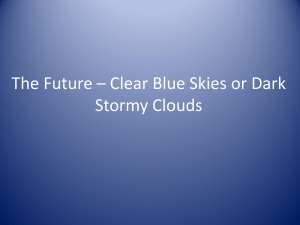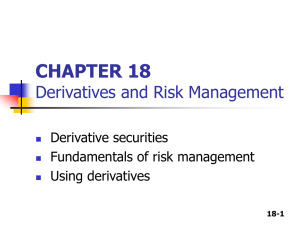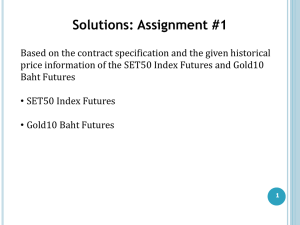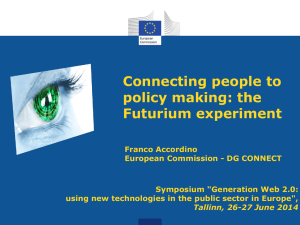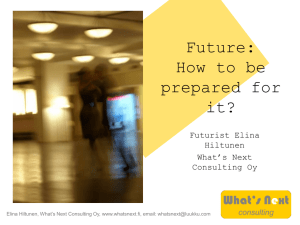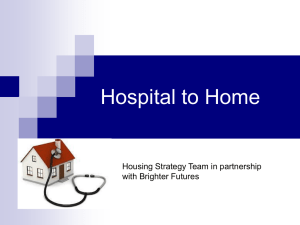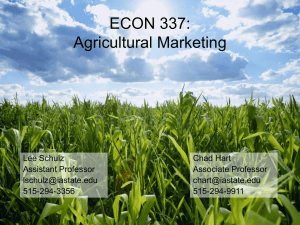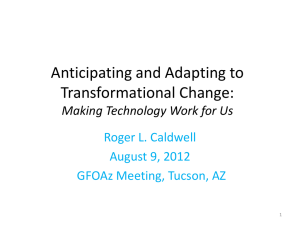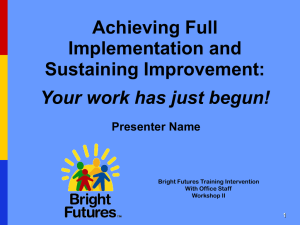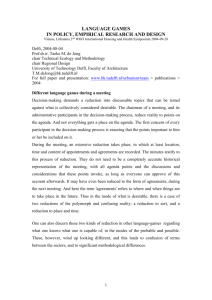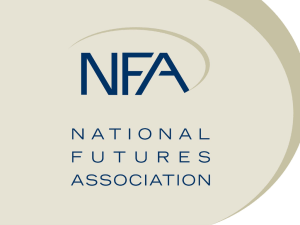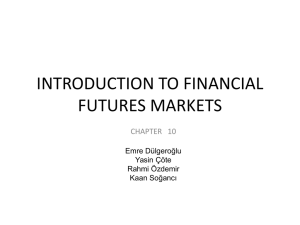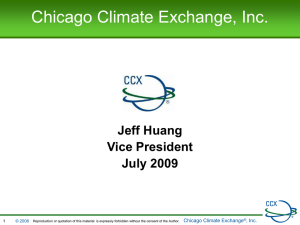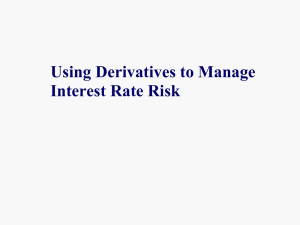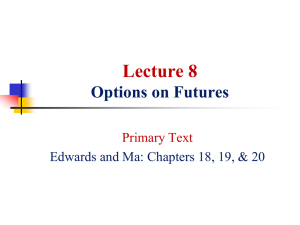Thinking and learning from the futures
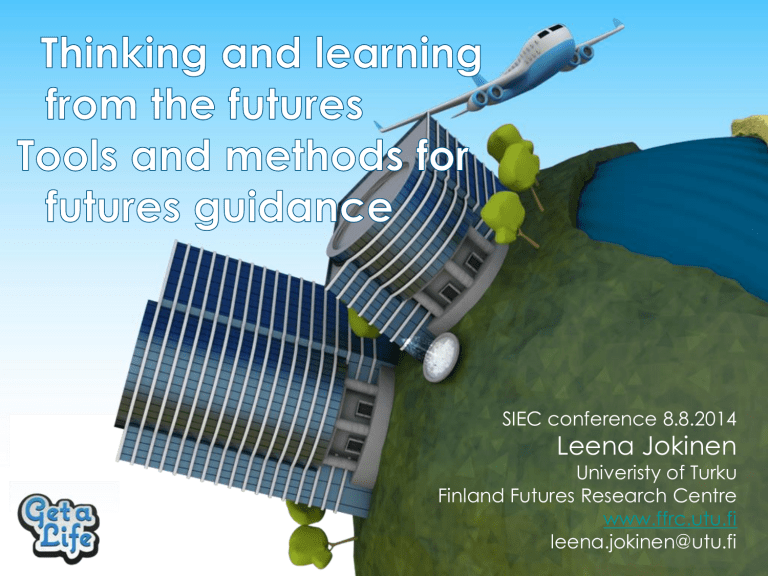
SIEC conference 8.8.2014
Leena Jokinen
Univeristy of Turku
Finland Futures Research Centre www.ffrc.utu.fi
leena.jokinen@utu.fi
Futures thinking and learning from the future framework
Futures orientation in career and life guidance processes
Guidance tools and working methods
Feedback and experiences on future work simulation and similar tools
I have seen the future
Interests of knowledge
Technical
Hermeneutic
Emancipatory
The tasks and interests of futures research (Mannermaa, 1986)
The Futures Field
Probability Desirability Possibility
The aim is to search for trends
(objectivity); alternatives are irrelevant
Forecasting is the main task of a study
Inessential
Unscientific
Self-evident
Main purpose is communication between people in a society, different tasks of futures research melt into a common understanding of the social reality
Increasing alternatives, making
‘impossible’ into possible
‘Probable’ is considered a reference alternative and
(usually) an object of criticism
It is more important to impact than search for a
‘probable’ alternative
Scenario building & futures thinking – some presumptions
• Possible, probable, preferred, transformative futures
• Focus on the personal futures approach
• Dealing with uncertainty, new models of reality, nonlinear changes
• Inflation of education, need for new skills and life-long learning
• Diversity in anchors of life: work, wealth, personal wellbeing, family, religion, ideologies…
- > rise of new communities, tribes, subcultures
Theoretical
approaches to career choices and development
• Since the 1950s, there has been much written on how personal and environmental factors shape people’s career choices
• Main strands of research: developmental approaches personality-based theories trait and factor approaches typological theories self-concept social learning self-efficacy theory gender, racial and minorities
Cognitive
approaches to career counseling
• Tools in general address to students ´ need to transform their personal likings into careers
• Databases and information sources about professions and jobs are based on history leaving teens with more questions than answers about how to best prepare for those opportunities
• A realistic view of a broad range of occupations and concrete advices about possible ways to get started in any given profession is very time and context sensitive
Holistic and future oriented sociodynamic approach to counseling
• Thinking of one’s own life and transition to working life
• Supports the student in self-efficacy in the vocational growth in different stages of studies
• Basic notion for guidance is to promote comprehensive and personally meaningful representation of the work self
• Explorative rather than normative model of decision making
• Emphasis on alternative futures, happenstance, uncertainty, context
• Promoting critical reflection and self regulation
• Future consciousness , reflection of individual thinking and acting
Futures
consciousness
• The human capacity to think about the future, create ideas, images, goals, plans and use them to direct one's life and actions
• “Future consciousness is a total integrative set of psychological abilities, processes, and experiences humans use in understanding and dealing with the future” (Lompardo, 2008)
• Awareness of the future grows in time and experience. It can be promoted and capacities improved
• Some cultures are more future oriented while others focus on pasta or present
• Attitudes, modes of thinking, and frames of minds vary from negative, counter-productive, or apathetic to the optimistic, positive, and active
Personal
futures
• The future is present in our thoughts, aspirations and choices, when we plan our lives, when we solve problems related to it, when we make decisions that affect our lives
• The comprehensive manifestation of the future, its presence in us and to us, can be termed as futureness
• The future that is not purely objective, rational and logical representation of possible future realities – a set of probable or desirable alternative paths or scenarios.
• From the personal point of view, the future is giving meanings and significance to things, not just the time from here on or a general abstract possibility and the probable direction of events
• The concept of making or creating the future contains the idea that the future is open and that we can influence it with our own action
Futures
guidance messages
Trust your options
Statements of
futures of work
• Human work will end, humans will free themselves from work, enlightenment project will reach its conclusion
-> the end of work?
• Illusion of education and employment meaning,
(welfare) state propaganda
- learn how to run faster or jump into another game
• Hybrid occupations, seasonal variations, precariat, cognitariat
• Overproduction of goods, crisis of demand
-> obligatory consumption
Futures awareness in career management and consciousness building
• Readiness and proactive attitude for alternative and uncertain futures
• Simulation creates a future context in which individuals can test their assumptions and values, facilitating greater self-knowledge and self-directness
• Futures images engage intuition and emotions to complex cognitive processes of career management as well as decision making
• Probable images of future work life suggest that organizations can no longer offer jobs for life and individuals have to be proactive about their careers
Learning in simulations
• Learning to:
• Know (new information, cognitive processes), which is intertwined with learning to:
• Do (decision-making, choices based on cognitive processes) that results in learning to:
• Be (in a new, unprecedented situation)
• Simulation produces new situations of which the user hasn't any previous experience
• The user combines existing information and seeks likenesses using also others' experiences (friends, parents) and other information as reference and acts (=chooses) based on the combined knowledge.
Get a Life! An online simulation tool
• Future work life simulation tool for HE students
• Based on scenarios for future work life in Finland
&Europe to the year 2030
• The outcomes:
• Long-term future scenarios on the development and changes in working life
• An online simulation tool for students in the career-planning process
• Pedagogical model and a virtual handbook for career counselors
• Get a Life –futures simulation www.getalife.fi
• Major and minor choices http://www.koukkuun.fi/2014/01/pienet-suuret-valinnat.html
• Andventure in mist
• http://www.koukkuun.fi/2014/01/seikkailu-sumussa.html
• Personal career paths compass (HUPS-prosessi) http://www.koukkuun.fi/2014/01/hups-henkilokohtaisiaurapolkuja.html
• Future Camp – www.facebook.com/futurecamp.fi
Feedback on the
tools
• The students seem to have focused on receiving actual, concrete advice about the future of work life
• The concept of career planning does not resonate too well with radical changes
• “I think that the simulation is mainly about the effects of your personal choices on the future. At one point I felt like that it also enables the testing of changes in one’s moral values and principles on career development.”
Contact http://www.ffrc.utu.fi/ leena.jokinen@utu.fi
Picture Osmo Rauhala

